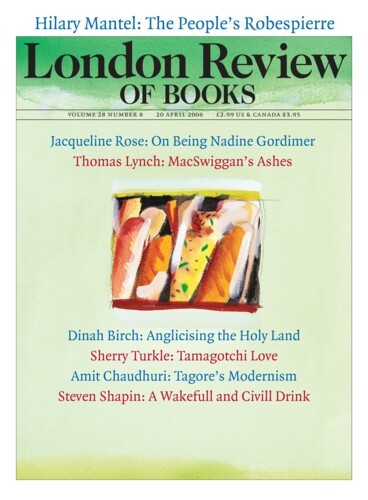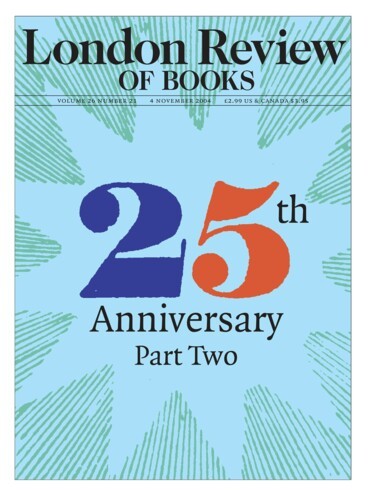The Iron Rule: Bernhard Schlink’s Guilt
Jacqueline Rose, 31 July 2008
Towards the end of Bernhard Schlink’s best-known novel, The Reader, the narrator is pondering his future after taking his state exam in law. He has just seen his former lover, Hanna Schmitz, convicted of war crimes: she had been a concentration camp guard, something he hadn’t known when she seduced him as a 15-year-old boy. None of the roles he saw played out in court appeals to him: ‘Prosecution seemed to me as grotesque a simplification as defence, and judging was the most grotesque oversimplification of all.’ He has lost his belief in post-Enlightenment law as enacting a gradual but steady progress towards ‘greater beauty and truth, rationality and humanity, despite terrible setbacks and retreats’. Now the law seems to him more like Odysseus’ journey – a process that endlessly circles back to its original starting point only to set off again. In this reading, the Odyssey is a story of motion, at once successful and futile, driven and without aim: ‘What else is the history of law?’




